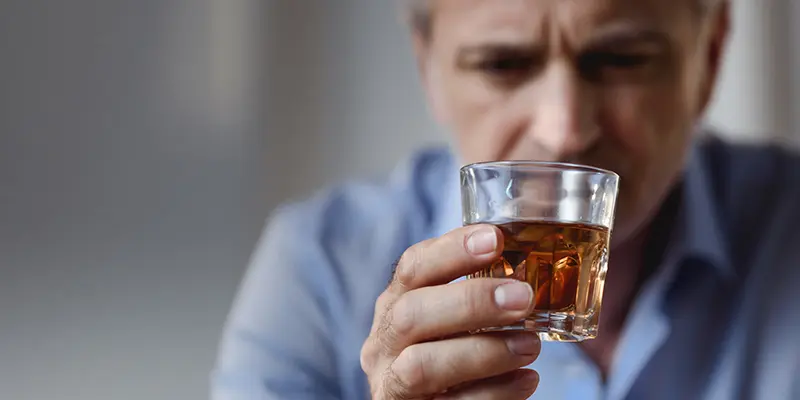
By Jennifer Love, MD
You’ve seen the memes: A fully packed stadium with the words: “Alcoholics Anonymous Meeting, 2021.” “If you have a drink in each hand there’s a 100% chance you won’t touch your face!” We’ve updated our vocabulary to include “Quarantini.” Amazon now sells a Sit and Sip Refillable Winebag Chair, which pictures an enormous beanbag the size of a small car, with a woman lounging atop drinking from a plastic tube.
The message is clear: When crisis strikes, drinking is not only socially acceptable but encouraged. A study early on in the pandemic claims 1 in 3 Americans are more likely to drink alcohol during work hours while in lockdown. The numbers vary by states: 38% of California, New York, and Pennsylvania workers are drinking during work; about 50% in Idaho, Kansas, Iowa, and Virginia; and Hawaii “wins” at a reported 67%. The study didn’t even look at non-work hour consumption!
As mental health care providers, we have to take notice.
THE COVID EFFECT ON ALCOHOL AND DRUG USE
You may share my observation that shortly into the COVID crisis many psychiatric patients decompensated and needed increasing amounts of attention and treatment, and many addiction patients seemed to recede into some secret abyss.
I’ve also seen a tide of new patients scheduled by concerned family members because hiding an addiction is a lot more challenging when everyone is stuck in the home together. But COVID fear is also a barrier to treatment, as many families refuse to consider treatment modalities that involve anyone leaving the house, limiting treatment to online support.
I’ve been pushed into a more creative role of trying to invent ways to support the recovery of my patients and encouraging ongoing engagement. I’m certainly stretching my Motivational Interviewing muscles, trying to help people find reasons to change behaviors when many literally have nothing to do. Many of our old standbys of “is your drinking causing any problems with work/social interactions/legally…” may not apply. So how can we comfortably discuss increased alcohol or substance use during the COVID era with patients who aren’t in treatment for any addiction?
Well, substance use is like suicide—asking about it is necessary, and it doesn’t increase the risk of someone trying it. So even if you don’t specialize in treating substance use disorders, with a few tips you can proceed comfortably. Refresh yourself with the basics of helping someone increase their own internal motivation for change.
Here are 5 strategies I use.
5 KEYS FOR TALKING ABOUT SUBSTANCE USE
1. Remember, empathy is key.
I tell my patients from day one that we have a “judgment-free space.” I used to be a chemist, and successful experiments don’t rely on judgment. They rely on observation. I go in with a hypothesis, and it’s either correct or incorrect; there’s no need to be attached to whether I’m right. Either way I’m publishing a paper. If we can cultivate a sense of curiosity about ourselves rather than judgment, motivation for self-exploration increases exponentially. Don’t assume your longtime patients know you won’t judge them. Think about how many of them suffer low self-esteem, negative thoughts, and self-doubt. It needs to be stated.
2. I start by asking questions.
“What do you value? Does your current alcohol consumption fit in with those values?” “If COVID is going to go on for a few years, do you want to spend those years being a daily drinker?” “We’re six months in. Did you ever expect to be a daily or near-daily drinker for that long? I think we’re all thinking about that now—even some of my friends and colleagues!” The purpose is for your patient to discover discrepancies between their values or goals and their behavior.
3. Refrain from argument.
Your patient already knows your opinion on smoking, drinking, using drugs, playing video games, or watching porn 12 hours a day. They aren’t discussing this with you because they don’t know what is best; we, as humans, are just wired not to want to make changes. Confrontation slams the door.
4. Encourage curiosity.
Since we as humans resist change, encourage curiosity about internal resistance. I once did a podcast called “Why don’t I want to do the things I want to do?” I want to eat healthy and exercise, but what I really want is to eat pizza and watch Netflix. Judging the pizza and inactivity doesn’t inspire change, it induces shame, which drives people inward (now curled up on the couch). Being curious about the pizza and inactivity allows someone to explore the thoughts and feelings that contribute to their internal resistance and do what they logically want to do.
5. Support an environment of self-efficacy and optimism.
This is when I bring out my famous (ha!) snorkeling analogy. Yes, the words, “Life is like snorkeling” have escaped my lips more than once, but hear me out. We’re out snorkeling, eyes on the colors—the fish, the coral, watching out for reef sharks—and every once in a while, we have to stop, look up, and see where land is. We have to make sure we haven’t drifted. Sometimes we have to swim over to a new area, and then can start looking down again, getting caught up in the colorful show of life. We will hopefully do this a few times in life—make sure where we are is where we want to be in relation to our “grounding spot.” Are you where you want to be? Are your patients?
About the Author: Jennifer Love, MD, Amen Clinics Orange County, CA
Dr. Jennifer Love is board-certified in psychiatry, addiction psychiatry, and addiction medicine, and is a Diplomate of the American Board of Psychiatry and Neurology and the American Board of Addiction Medicine. Dr. Love is an award-winning researcher and international speaker, interested in the interface between cultural and spiritual factors and overall mental health. She is also suboxone certified. Dr. Love’s work focuses on restoring life balance, brain and body health, and helping her patients improve their functionality and satisfaction in life. She considers a wide range of interventions including nutraceuticals, medication, exercise, yoga, psychotherapy, and sleep/relaxation training. Her specialties include mood disorders, substance use disorders, anxiety disorders, anger and irritability, behavioral addictions, co-occurring pain, and opioid dependence.
Dr. Love is the co-author of When Crisis Strikes: 5 Steps to Heal Your Brain, Body, and Life from Chronic Stress. Stay up to date by following @dr_author_jennifer_love on Instagram.





No Comments »
No comments yet.
RSS feed for comments on this post.
Leave a comment